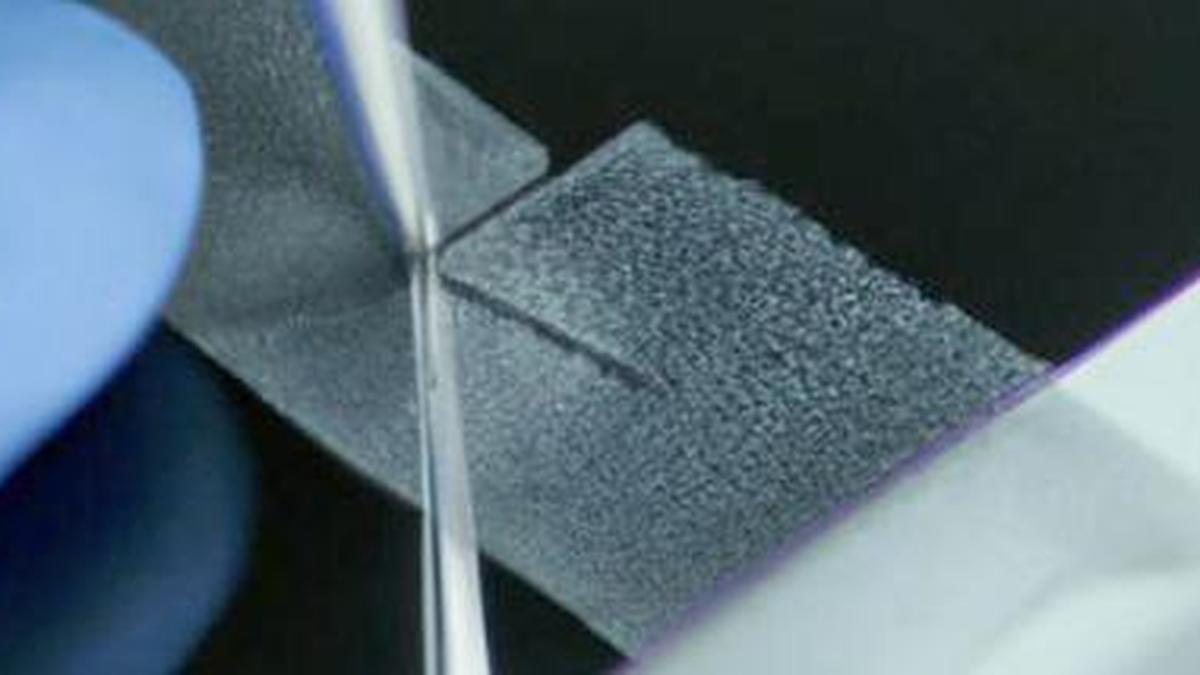
Innovative natural polymer-based graphene film paves way for wearable tech
The Hindu
Researchers at BITS Pilani, Hyderabad develop graphene-like material film with enhanced conductivity using natural polymer for flexible electronics.
Researchers at the BITS Pilani, Hyderabad Campus, claim to have developed a graphene-like material film with enhanced electrical conductivity using a natural polymer which could be pivotal in the creation of flexible and wearable electronics.
“These devices can be built on paper and cloth for various potential applications and versatile devices for electrocardiography, biofuel cells, supercapacitors, and the likes,” says lead researcher and PhD scholar from MEMS, Microfluidics and Nanoelectronics (MMNE) Lab, Pavar Sai Kumar.
Graphene, extracted from graphite, boasts unique properties such as high electron mobility, fracture strength, tensile strength, thermal conductivity, and a large specific surface area. Various graphene-based materials, such as graphene oxide (GO) and reduced graphene oxide (rGO), have been synthesised for applications like batteries, solar cells, sensors, lubrication, and corrosion protection.
The synthesis of reduced graphene oxide (rGO) offers properties like high conductivity and thermal performance, crucial for industrial applications in sectors like automobile, textile and steel. However, traditional production methods involve toxic chemical reagents such as hydrazine, hydrates, and dimethylhydrazines, which release carbon dioxide gases.
BITS researchers had, in an earlier work, made a one-step laser-induced reduced graphene oxide (LIrGO) production from paper and cloth but with “lower electrical and physicochemical properties”. Now, they have improvised by using a natural resin or polymer called ‘Shellac’, secreted by the lac bugs on the trees of India and Myanmar. This had helped get the required rGO material to help make the one-step sensors on paper and cloth for various applications like flexible and wearable electronics.
“Integrating advanced materials into everyday items, such as paper and fabric, opens possibilities for developing efficient and versatile devices with potential applications in future including healthcare diagnostics and treatment, and even as a semiconductor for quantum computing,” explains Sanket Goel who supervised the research. This study conducted in association with Tata Steel has been published in the latest edition of one of the journals of Royal Society of Chemistry.













